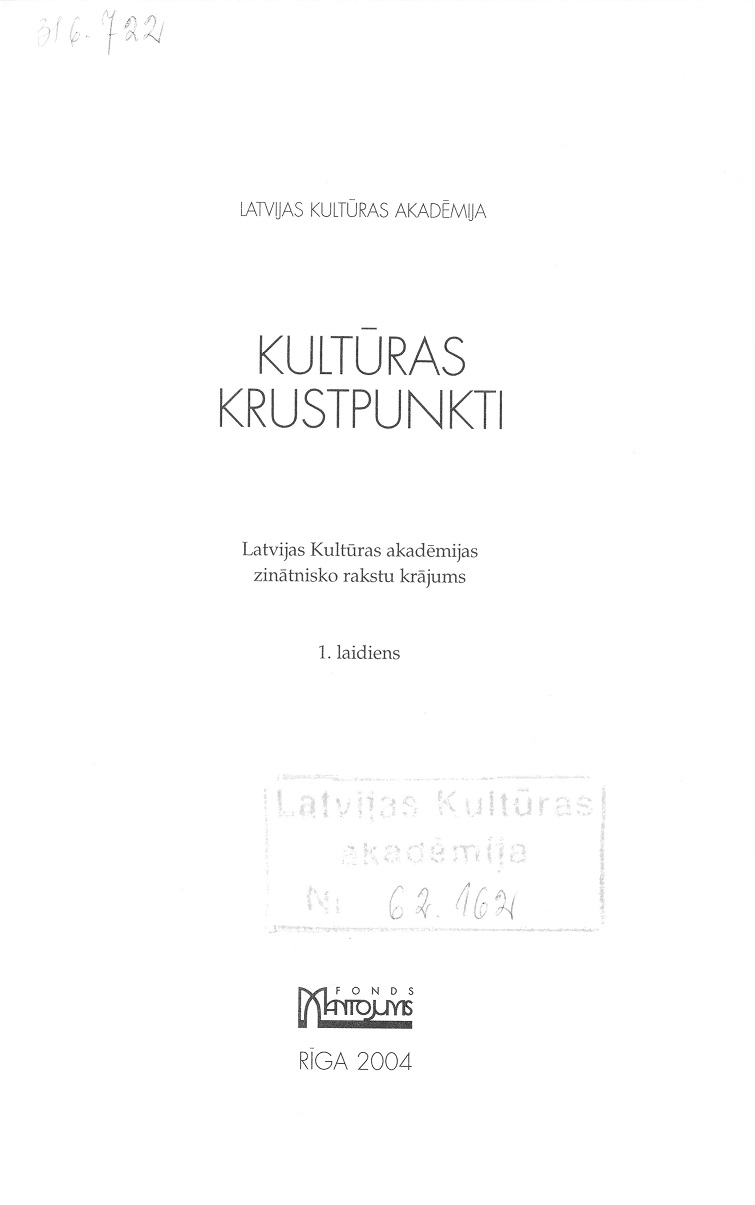Reformātu tradīcija Latvijas teritorijā 20. gadsimtā
The Reformed Tradition on the Territory of Latvia in the 20th Century
Author(s): Valdis TēraudkalnsSubject(s): Christian Theology and Religion, Cultural history, Social history, Recent History (1900 till today), Sociology of Religion, History of Religion
Published by: Latvijas Kultūras akadēmija
Keywords: Latvia; reformed tradition; 20th century; Reformed congregation; Reformed Christians; Reformed church;
Summary/Abstract: The past of the Reformed tradition in Latvia is not a well-known part of our In lory. The first Reformed congregation in Riga was registered in 1590 and it 'used St. Jacob's Church for worship. In the Duchy of Kurzeme (Courland) Reformed Christians appeared around 1645 and they were able to gather in the Reformed hall of Mitau (Jelgava) Castle. Nobles were afraid to involve Latvian peasants in the Reformed congregation because Reformed churches were autonomous and the principle of self-governance would create an independent social space for Latvians. In the 18th century Reformed church buildings were built in Jelgava and Riga and with Kurzeme and Vidzeme becoming part of the Russian Empire the Reformed faith was able to gain a more stable legal status, however, it was integrated in the Lutheran Church. At the end of the 19th century a group of Lithuanian Reformed believers emerged in Riga, which gradually transformed itself into an independent congregation. The number of German adherents of the Reformed faith slowly diminished due to the aging of the Baltic German population. The First World War caused a further shrinking of the Reformed circles because many foreign citizens belonging to this division of Christianity left the Baltic region.
Journal: Culture Crossroads
- Issue Year: 1/2004
- Issue No: 1
- Page Range: 77-90
- Page Count: 14
- Language: Latvian

